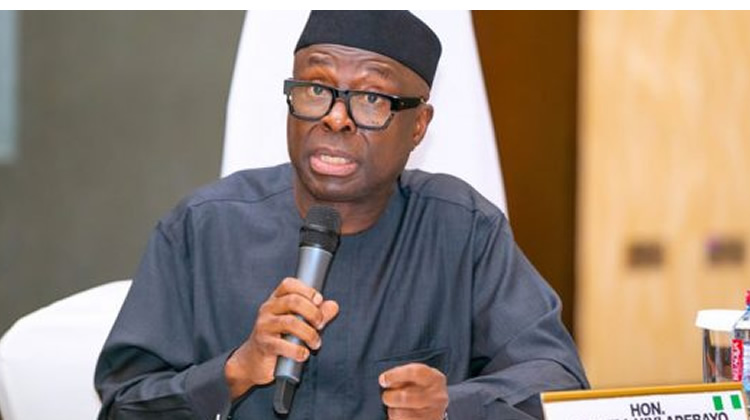
EDIDIONG IKPOTO examines how unfulfilled promises, energy costs and forex shortage, among others, plagued the manufacturing industry under the current government
When the curtain finally comes down to signal the end of the current administration, the President, Major General Muhammadu Buhari’s legacy will be remembered for successes and failures recorded on different fronts. As far as the administration’s relationship with the manufacturing sector is concerned, it will simply go down as a tale of broken vows.
Right before the takeoff of the outgoing administration, the Manufacturers Association of Nigeria, in an economic and industrial memorandum sent to the President, Major General Mahammedu Bahuri, as a guide for his administration, lamented the low performance of the real sector, which had failed to meet its target of 23.36 per cent contribution to the country’s Gross Domestic Product.
In the memorandum, the manufacturers said the challenges of the manufacturing sector were grouped into infrastructural, cost, environmental and social challenges.
According to them, there was a need to provide adequate power, improve the poor road network in the country, make available rail services and improve port services in order to reduce costs.
The manufacturers urged President Buhari to reduce interest rates, provide long-term loans, solve the problem of multiplicity of taxes, and reduce the cost of local inputs and self-generated energy by ensuring 24 hours power supply in the country.
They also identified inconsistent government policies, increased trade malpractices, such as smuggling, dumping and faking of made-in-Nigeria products, and overlapping functions of regulatory agencies.
They emphasised the need for stability in the polity and security in order to make Nigeria a destination for foreign investment.
Meanwhile, Buhari, on his part, noted on several occasions that the manufacturing sector would play a crucial role in the quest to diversify the Nigerian economy.
While speaking at the 44th Annual General Meeting of MAN in 2016, Buhari said his administration remained committed to partnering with the manufacturers in the task of charting a brighter future for the country.
According to him, the event, which was themed ‘Diversifying the Nigerian Economy: the Role of Government in Manufacturing’ was quite apt as it came at a time when the nation was faced with the urgent need to diversify the economy in the light of dwindling price of crude oil in the global market.
He further stated that his administration was convinced that the key to the country’s quest for economic diversification and, therefore, survival was in agriculture and the manufacturing sector.
The President asserted that a strong manufacturing sector would create more jobs and usher in sustainable economic prosperity because the country would produce what it consumes and generate foreign exchange by exporting any surplus.
Buhari said, “The Manufacturing sector is well positioned to be a major driver of Nigeria’s economic growth because of our immense natural resources and the entrepreneurial spirit of Nigerians. The government is therefore focused on implementing necessary policies and strategies aimed at unleashing the full potential of manufacturing in Nigeria.
“We will rely heavily on your ideas and inputs at all stages of formulation and implementation of new industrial policies. For our part, we will remove bottlenecks and create a more business-friendly environment.”
However, Buhari’s words have not matched his actions. Despite acknowledging the importance of the manufacturing sector to the economy and also pledging to work in tandem with the manufacturers, did not fulfil his end of the bargain. Ironically, when he assumed office, one of the first things he did was to direct the Central Bank of Nigeria to remove about 41 imported items from the list of imports that could access foreign exchange via the official window.
The move, for all the good it was meant to do, was vehemently criticised by players in the industry because Nigeria was not equipped to produce those items locally. As a result, many manufacturers had to source for their forex at the parallel market, where the naira had begun to face rapid devaluation at a sprinter’s pace.
It is important to note that when Buhari assumed office in 2015, the naira was trading at N197 against the dollar. However, in the immediate aftermath of the President’s entry into office, the area took a big dive for the worse, due to the significant drop in the prices of oil, which is the country’s source of forex. Consequently, manufacturers had no access to the dollar at the official rates and had they had to cope with volatility in the parallel markets to deal with.
As the completes his tenure on May 29 after spending eight years as the president, the naira now trades at N462 to the dollar at the official window and N755/$ at the parallel window, where most manufacturers source their forex, despite repatriating the same forex earnings via the I & E window at N462.
While speaking with The PUNCH, the Chief Executive Officer of Coleman Technical Industries, George Onafowokan said that much of the bottlenecks that plagued manufacturers under the Muhammadu Buhari regime hinged on lack of access to foreign exchange.
Onafowokan said, “The FX affected manufacturers badly over the years. It is still affecting us now. The current administration just was not able to stabilise it since 2015. That did not help the industry.”
In addition to the forex challenge, manufacturers also had to deal with an aggressive tax regime under Buhari. Earlier this year, The PUNCH reported that taxes paid by manufacturers to the Federal Government rose by 60 per cent to N839.6bn in 2022 from N524bn recorded in the prior year. Apart from being the highest payers of Company Income Tax throughout Buhari’s eight years, manufacturers also had to grapple with the increase and introduction of levies, excise duties and many other forms of taxes.
Only last week, MAN, in response to the recently published 2023 Fiscal Policy Measures, said that the recent increase in excise duty for beverage and tobacco goods would force businesses to scale down operations, which would result in factory closures, job losses, and a decline in exports.
Another major factor that negatively affected manufacturers during Buhari’s regime was inadequate energy for production needs. Again, this came on the back of numerous promises by the president to blow a breath of fresh air into the sector through the right policies.
While addressing the National Economic Council retreat about ten months into his presidency, he said his government had set a target of delivering 10,000 megawatts of electricity generation in the next three years.
He said, “Nigerians’ favourite talking point and the butt of jokes is the power situation in our country. But, ladies and gentlemen, it is no longer a laughing matter. We must and by the grace of God, we will put things right.
“In the three years left for this administration, we have given ourselves the target of 10,000MW distributable power. In 2016 alone, we intend to add 2,000 megawatts to the national grid.”
However, eight years down the line, these promises were never fulfilled, and manufacturers have spent well over N700bn to independently generate electricity in the last eight years.
According to the Bi-Annual Economic Review report published by MAN, manufacturers spent at least N143bn on self-generated power to run their factories in 2022 alone.
Also, documents analysed by The PUNCH showed that manufacturers spent N639 billion on alternative energy sources between 2014 and 2021.
Speaking with The PUNCH, the Deputy President of the Lagos Chamber of Commerce and Industry, Gabriel Idahosa, identified Buhari’s failure to address the energy crisis that plagued manufacturers as the faulty foundation that accounted for his failure to provide the needed fillip for the productive sector of the economy.
“In the manufacturing sector, the government did not do as expected. If we are looking at where the government got it wrong, it is very straightforward – not improving the power supply. The blood of manufacturing is power. So, because the government did not improve the power supply in the country as expected, self-generation is very expensive.
“It puts the cost of production out of affordable market prices. So, where they got it wrong was power. The manufacturing industry did not have the power it needed to operate optimally, and until that is addressed, manufacturing will continue to struggle. This also affects the inputs. Manufacturers need raw materials, packing materials and the mining sector. All those other input sectors also depend on power.”
All of these, coupled with two global shocks in the Covid-19 pandemic and the Russia-Ukraine war dove-tailed to pile additional pressure on a manufacturing industry that was already struggling.
While the Covid-19 pandemic and the Russia-Ukraine war may have played significant roles in militating against the growth of the sector in recent years, experts believe that failure on the part of the government in addressing the fundamental factors that hamstrung the sector further hampered its growth.
Other factors that plagued the manufacturing sector under Buhari included a lack of access to raw materials, declining local and foreign investment in the sector, and increased cost of borrowing, among others. As a result, the contribution of the manufacturing sector to the GDP declined from almost 10 per cent in 2015 and stayed under the double-digit line for the vast majority of Buhari’s reign.





